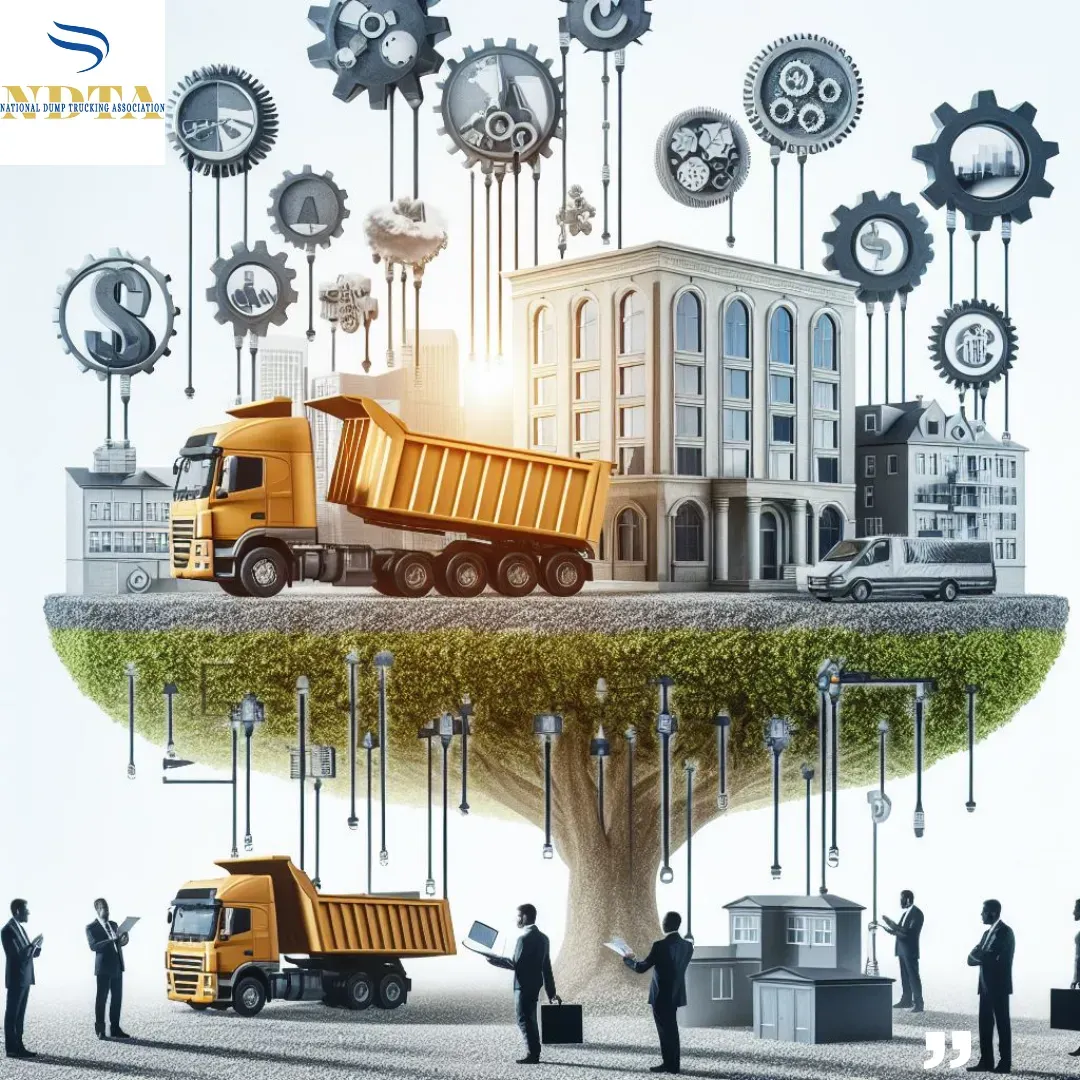
Choosing the Right Business Structure for Your Dump Truck Business
Choosing the Right Business Structure for Your Dump Truck Business
Uncategorized Apr 05, 2024

Launching your dump truck business is an exhilarating endeavor, but before you hit the road, it's imperative to select the appropriate business structure. This decision not only affects your legal standing but also influences your tax obligations and growth prospects. Let's navigate through the various options to find the perfect fit for your venture.
Sole Proprietorship: This straightforward structure entails operating your business as an individual. While it offers simplicity and minimal setup costs, it also exposes you to personal liability for any debts or legal issues.
Limited Liability Company (LLC): Opting for an LLC provides a shield between your personal and business liabilities, offering legal protection for your assets. Moreover, it offers flexibility in taxation, allowing you to choose from various options such as sole proprietorship, partnership, or corporation.
Partnership: If you're venturing with a business partner, a partnership structure might be ideal. It can be a general partnership, where all partners share equal liability, or a limited partnership, providing some partners with limited liability.
Incorporation: For those with ambitious aspirations, incorporating your dump truck business could be the right path. A corporation offers the highest level of protection, separating personal assets from business liabilities. Additionally, it facilitates capital raising through stock issuance, albeit with more complex legal and tax requirements.
Consultation is Key: The right business structure depends on various factors such as your financial goals, growth plans, and individual circumstances. Seeking guidance from legal and financial experts specializing in business law can provide invaluable insights to make an informed decision.
Choosing the optimal business structure lays a sturdy foundation for your dump truck business, ensuring legal compliance, minimizing tax liabilities, and paving the way for sustainable growth and success.
Obtaining Necessary Licenses and Permits
Starting a dump truck business promises profitability, but compliance with regulatory requirements is paramount for smooth operations. Let's embark on the journey of obtaining the essential licenses and permits to ensure legal adherence and operational efficiency.
Commercial Driver's License (CDL): A prerequisite for operating a vehicle with a GVWR of 26,001 pounds or more, a CDL necessitates passing written and skills tests encompassing pre-trip inspection, basic control skills, and on-road driving.
Endorsements: Depending on the materials you transport, specific endorsements like hazardous materials endorsement may be required. Research your state's requirements diligently to ensure compliance.
Business Registration: Registering your dump truck business with local and state authorities, obtaining an EIN, and securing relevant permits are crucial steps for legal operation.
Liability Insurance: Shielding your business from the financial repercussions of accidents or damages during operations, liability insurance is indispensable.
Environmental Compliance: Given the nature of materials transported, adhering to environmental regulations is imperative to avoid penalties and legal entanglements.
Navigating the regulatory landscape may seem daunting, but with meticulous preparation and adherence to guidelines, you'll steer your dump truck business toward lawful and responsible operation.
Understanding Insurance Coverage for Dump Trucks
As you embark on the entrepreneurial journey of starting your dump truck business, comprehending the nuances of insurance coverage tailored to this industry is paramount. Let's delve into the intricacies of insurance coverage to safeguard your business and assets effectively.
Liability Insurance: Protecting against legal and financial liabilities arising from accidents or damages, liability insurance encompasses bodily injury, property damage, and legal defense costs.
Physical Damage Coverage: Essential for shielding your dump truck from damages due to accidents, theft, vandalism, or natural disasters, physical damage coverage ensures financial stability amidst unforeseen circumstances.
Cargo Insurance: Safeguarding the materials transported in your dump truck, cargo insurance covers damage or loss during transit, enabling you to fulfill contractual obligations to clients.
Comprehensive General Liability Insurance: Going beyond basic liability coverage, comprehensive general liability insurance offers additional protection against personal and advertising injury, product liability, and medical payments.
Collaborating with seasoned insurance professionals specializing in commercial trucking ensures tailored coverage, regulatory compliance, and comprehensive protection for your dump truck business.
In summary, prioritizing insurance coverage aligned with the unique requirements of dump truck operations fortifies your business against potential risks, paving the path for sustained growth and success in the dynamic landscape of the industry.